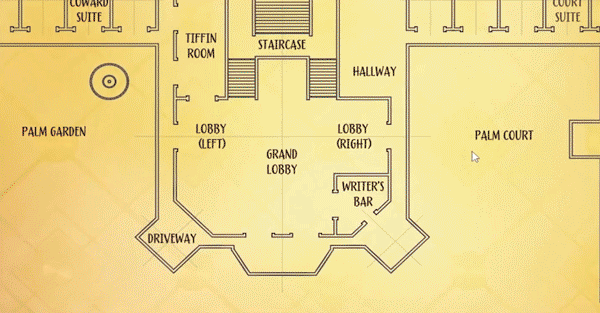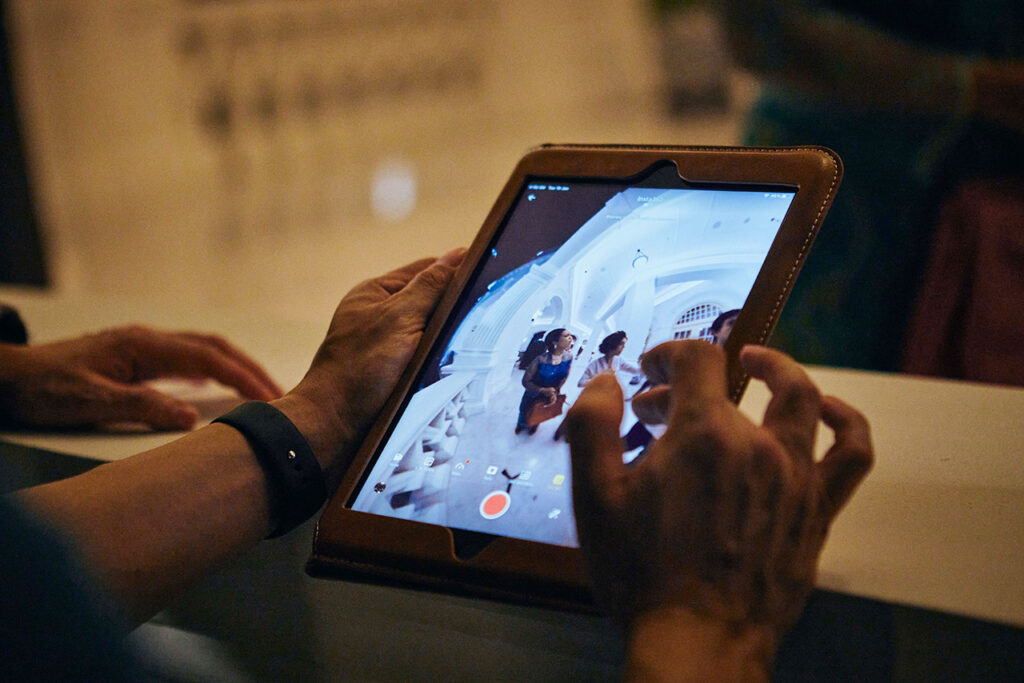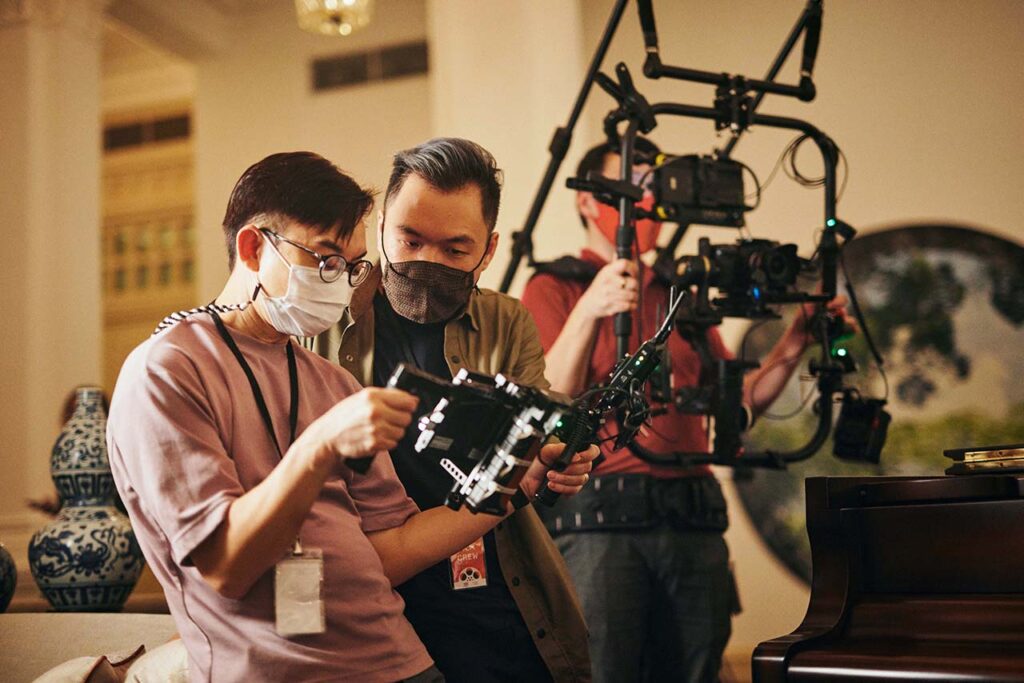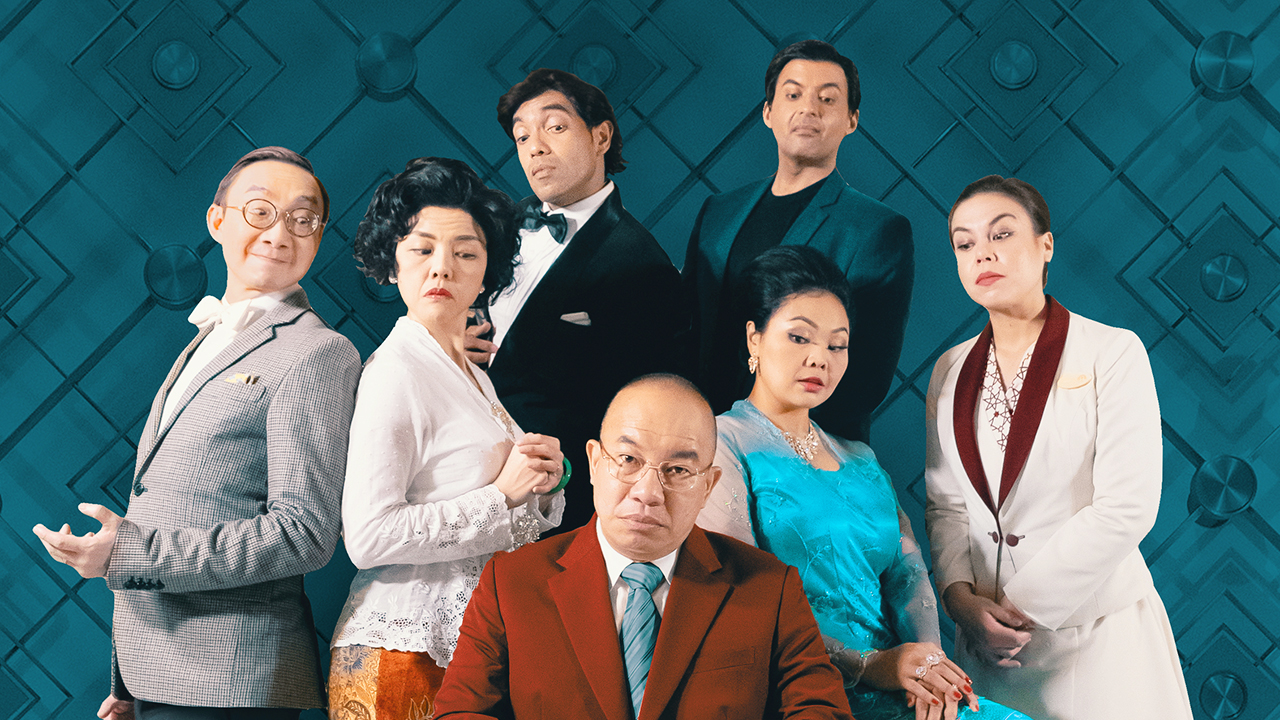The Curious Case of The Missing Peranakan Treasure is not for the passive viewer. Rather, the virtual play has a big ask of its audience: to crack the titular case. They’ve got help though. Along the way, the Singaporean production calls upon interactive technology, gamified elements, and 360-degree views to more fully immerse participants in a story where they get to play the meatiest role yet.
The digital work, which recently opened worldwide after a local release in April, might be the product of lockdown-era programming, but for Sight Lines Entertainment, the Singapore theater company presenting the play, such a marriage of theater and technology backbones its mission. “For us, it’s always been about creating immersive and engaging experiences,” Derrick Chew, Executive Producer at Sight Lines Entertainment, tells Jing Culture & Commerce, “to really bridge that connection with audiences.” Before its latest whodunnit, the company already had under its belt Murder at Mandai Camp, an early 2020 production that similarly used choose-your-own-adventure gameplay and a virtual platform in its storytelling.
Curious Case itself unfolds over a series of key scenes, set within the island’s palatial Raffles Hotel and presented in panorama, which users can activate via an interactive map. While each segment unfolds in the present day, glowing objects in select scenes are clickable to unlock flashbacks that flesh out the narrative. With all of the above serving as potential evidence, participants, playing detective, are invited to tease out the motives of six possible suspects and personally uncover the treasure thief.

Interactivity is built into the play — from its interactive map to the ability to pan across its 360-degree scenes. Image: The Curious Case of the Missing Peranakan Treasure trailer
For the play’s director, Hossan Leong, a veteran in Singapore’s performing arts scene, weaving interactivity and gameplay into the production posed fresh possibilities that rewired his creative approach. “I just said, we have to think of the mind map, how it works. Where do these characters go? And then let’s have flashback scenes,” he says in conversation with Jing Culture & Commerce. “My imagination went a bit crazy.”
Leong though had the support of a tech team — of whom, he says, “All I had to do was tell them my dreams” — who filmed the scenes with VR cameras, capturing 360-degree perspectives. The technology build-out was then overseen by Xctuality, an interactive studio with a store of virtual projects in its portfolio. This number of collaborators, Chew notes, made for “a combination of a theater workflow, a film workflow, and a tech workflow.”


Behind the scenes on the set of The Curious Case of the Missing Peranakan Treasure, with director Hossan Leong (below, left) and producer Derrick Chew (below, right). Images: Sight Lines Entertainment
This entailed a marked departure from standard theater practices where spontaneous edits could translate directly onto the stage. As Leong explains, “You can’t randomly make changes because this one decision will affect five people down the line.” At the same time, this domino effect drove the team to make earlier and more considered choices. He continues, “I think our work processes have improved because before every decision, you think, whose life will I affect?”
Notably (and admirably), Curious Case was pulled together in a mere six months — the kind of accelerated timeline that’s characteristic of projects in our pandemic year. Constraints, after all, compel innovation.
In fact, such a reorientation around tech and digital is further informing both Chew and Leong’s upcoming projects. Leong describes his intention to deploy holographic technology for a November concert that will open a French festival in Singapore, another collaborative outing with Chew. Sight Lines Entertainment, too, is in the midst of developing a mobile application to house its interactive presentations — a “Netflix for our immersive experiences,” says Chew — as part of its push toward a hybrid model blending site-specific performances with in-app technology like augmented reality.
Pre-COVID, such projects might have proceeded with nary a thought out of the box — as theater players, Chew admits, they’d grown “comfortable” in their processes. Leong, also a stand-up performer, reflects how he’s often been told, “Why don’t you just stand up and tell jokes? Just rent a theater, rent a room. It’s cheap, right?” But, as he sees it, “Why don’t we elevate people’s experiences?” he says. “Why not? We can.”



